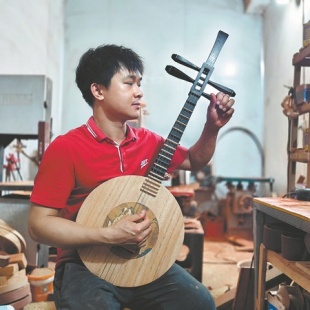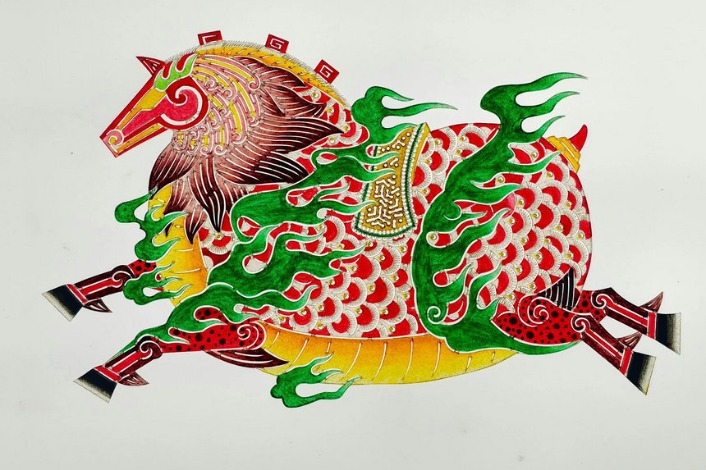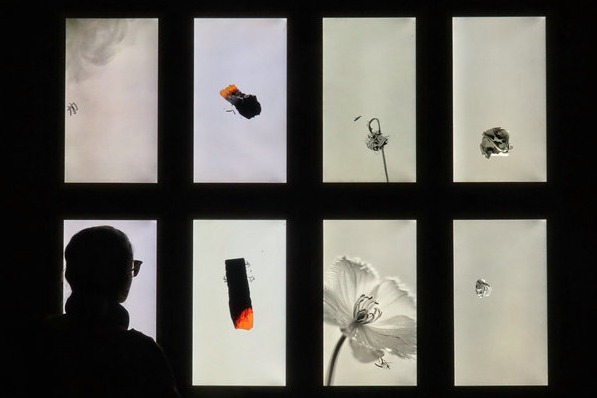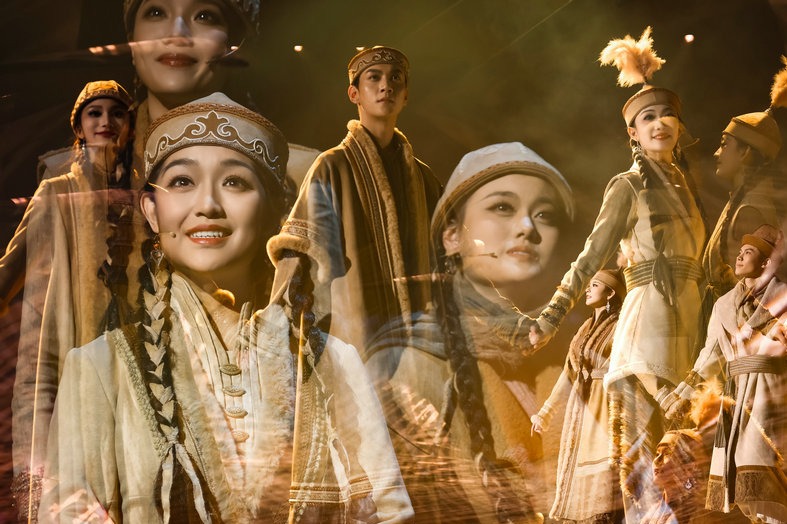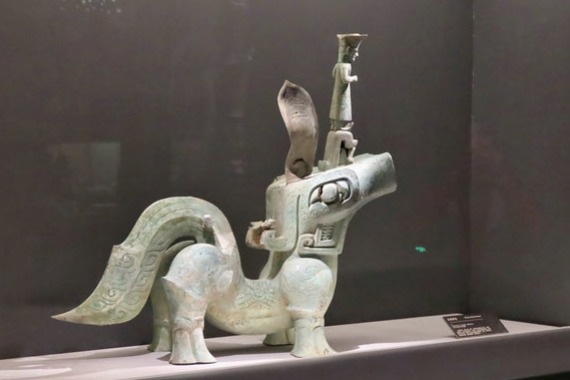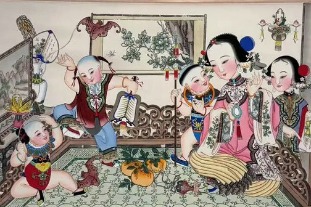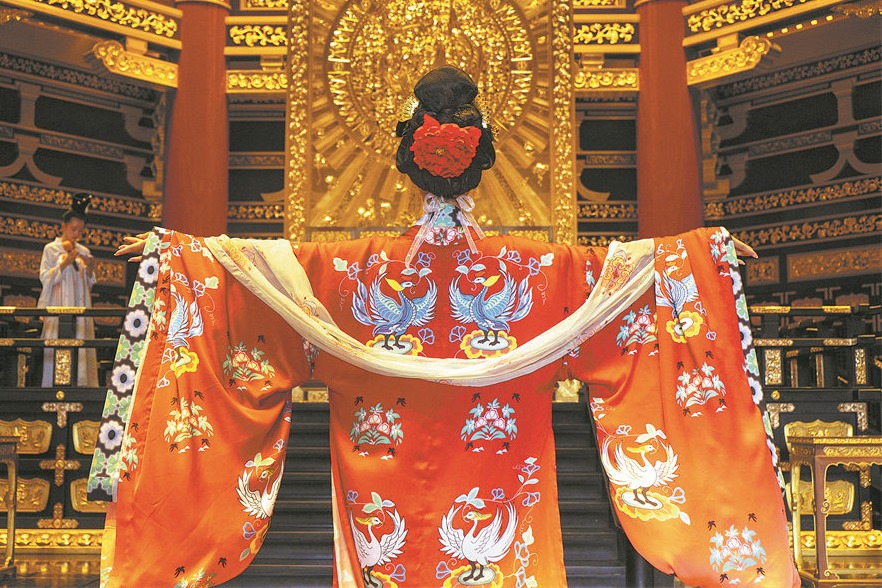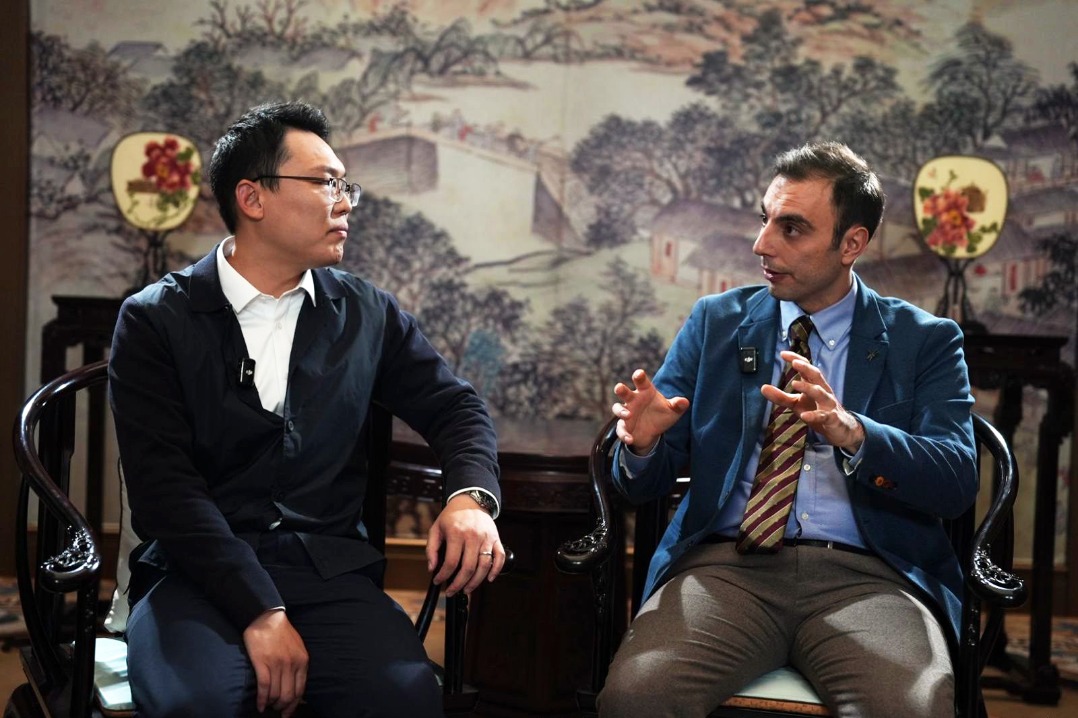The sound of a comeback
Ancient painting depicting idyllic scene helps inspire the return of a traditional instrument, Chen Nan reports.

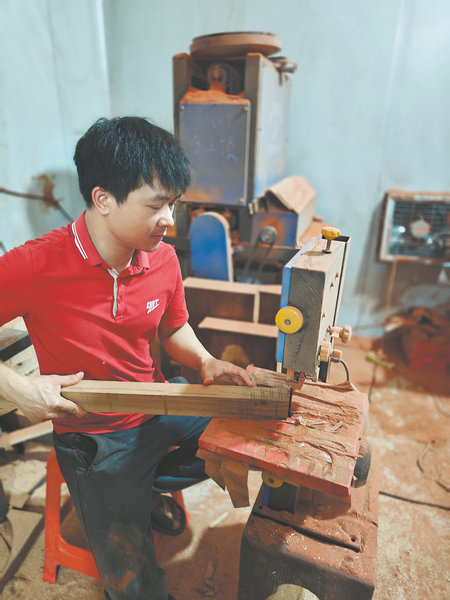
When Li Hao went through a book of traditional Chinese paintings, some showing musical instruments, in 2019, he was intrigued by one particular image.
It was a photo of a painting from the Southern Song period (1127-1279) by an unknown artist, titled Zhulin Boruan Tu, or "playing the ruan in the bamboo forest". It features three people clad in long robes in a bamboo forest near a creek, who are playing an instrument, the four-stringed ruan.
"The painting was so vivid and I could imagine the sound of the instrument and how beautiful it would be to hear in nature," says Li.
Inspired by the painting, the clerk at a university in Nanning, capital of South China's Guangxi Zhuang autonomous region, had a bold idea: to make a ruan just like the one he'd seen in the painting.
He read a lot of books and did research online, and also taught himself to play the modern version of the instrument.
The ruan is a Chinese plucked string instrument with a long neck and a circular body that is more than 2,000 years old.
After the People's Republic of China was founded in 1949, it was reinvented and given different sizes of sound boxes, enlarging the instrument's family into small, medium, large and bass versions. The zhongruan (medium) and the daruan (large) are mostly seen in Chinese orchestras nowadays.
When Li was a student at the Guangxi Minzu University, he joined the school's Chinese orchestra, playing the pipa (a four-stringed lute) and the guqin (a seven-stringed zither).
"I had many friends who were students at the university's art school. They taught me to play the pipa and the guqin," says Li, who majored in Chinese language and literature. "There were also students in the orchestra playing the ruan, but compared to the pipa and the guqin, the ruan catered relatively to a minority taste."
The 32-year-old started by drawing the ruan when he tried to make his first copy of the instrument.
Born and raised in Nanning, Li says that he has been interested in traditional culture from the time he was a teenager. He recalls vividly that he loved traditional paintings and copying the masterpieces for fun.
However, the ruan of ancient China and those of contemporary times are very different, which required Li to devote a lot of time to research.


